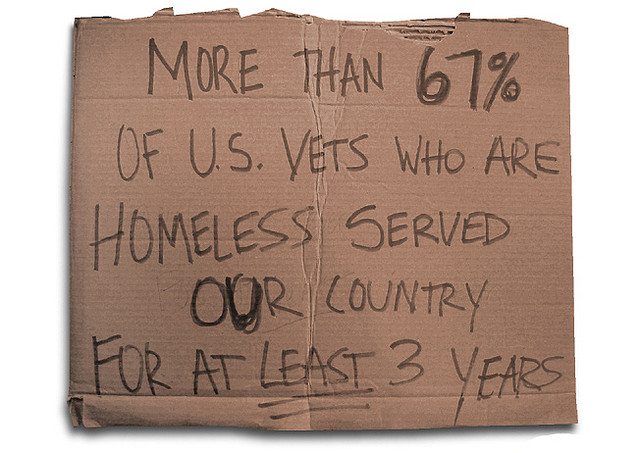Heyradine was down on his luck. The four-year U.S. Army veteran had injured both his knees in a training exercise where he was stationed at Ft. Benning, Georgia. His doctor told him not to lift heavy things, and to otherwise go easy on the knees.
That keeps him from holding a lot of jobs he’d otherwise be able to do. And the $1,500/month veteran disability income he receives does not enable him to live on his own.
Heyradine had to live between his car and a homeless shelter for eight or nine months. The shelter only allowed occupants to live there for two months at a time.
He went to the Montgomery County Crisis Center and they put him in touch with the Montgomery County Coalition for the Homeless (MCCH). He waited and waited for an apartment and, of course, looked for a job. Heyradine was about to give up.
He had gone so far as to buy a plane ticket back home to Niger in Africa, thinking he was not going to be able to stay in America. However, within a couple of weeks of that flight leaving, he got a phone call from MCCH saying they had found Heyradine an apartment.
He was moved into the new apartment in a Silver Spring, Maryland high-rise on Veterans Day.
“It’s a great day; I’m happy I have a place to stay,” Heyradine said with a big smile on his face.
The apartment is paid for by MCCH and furnished with furniture donated by a successful PCC Construction Components in Gaithersburg.
He’s still going back to Niger for a short break as planned, but then he’s coming back to the U.S.
As soon as Heyradine gets set up in his apartment, he is going to look intensively for a job. He said that he sees a very big problem with employers hiring veterans in this country, and especially injured ones like him. Disabled vets ought to be considered for what they CAN do, not emphasizing what they can’t.
“Please hire vets – please,” Heyradine implored local firms. He says they all say they’ll hire vets, but don’t follow through. “People like me are struggling.”
Heyradine has his sights set on working for a non-profit. “I want to make people happy, to improve people’s lives just like they (did for) me.”
Heyradine, who is in his 30s, is the latest homeless veteran to be housed by MCCH. The county has a goal of housing all homeless veterans by the end of this year, which is part of a national campaign, called Zero: 2016, to end veteran homelessness by the end of.
Heyradine drove home the same point, “Vets are really struggling. A lot are willing to work, but (employers) don’t want to hire somebody with a disability.”








